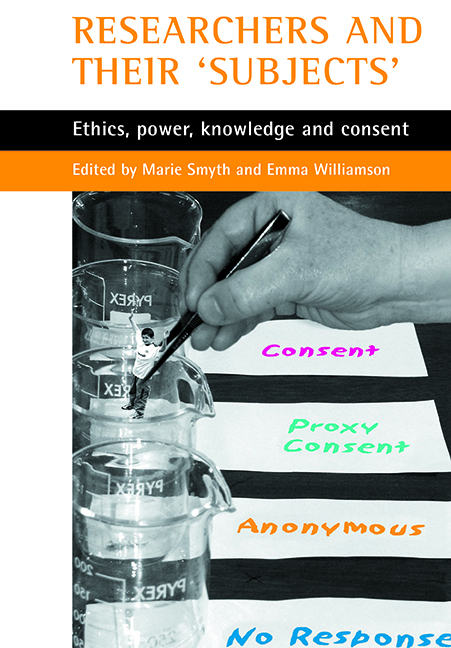three - Ethical protection in research: including children in the debate
Published online by Cambridge University Press: 20 January 2022
Summary
Introduction
This chapter considers participants’ views of ethical protection in longitudinal epidemiological genetic research. The data presented in the chapter was collected as part of a project called ‘Ethical Protection in Epidemiological Genetics (EPEG): Participants’ Perspectives’. This was a three-year, qualitative research project designed to consider how adult and child participants in a major longitudinal epidemiological and genetic study of child health (the ALSPAC study; see Chapter Nine of this book) perceive and understand their involvement in that research, with particular reference to the ethical protection of participants.
This chapter is particularly concerned with how child participants describe their relationships both to research and researchers, and to what extent and at what point can they be said to have consented to participate in the study. It offers insight into the way in which the ‘objects’ or ‘subjects’ of scientific enquiry perceive that role and contextualises that within wider contemporary debates about the role of children within society. Following a brief outline of the EPEG project methodology, this chapter first considers how children perceive their initiation into research within various processes of consent and proxy consent. This includes an examination of what children thought about the content of research, as well as whether they thought they would take part in research if asked now. We look at the choices that children make and their perceptions of the implications of such choices before examining what participation itself meant to this specific group of children.
What does this chapter contribute to an edited collection such as this one? It offers a unique insight into the perceptions of child research participants and focuses on their views of decision-making and ethics. The chapter is deliberately descriptive in terms of the presentation of children’s voices in order to ensure that the diversity of ‘participants’ is represented. This chapter offers the reader an opportunity to consider how child participants of research perceive their own roles in the research process and the relationships that inevitably develop between researcher and researched in long term studies such as that considered.
EPEG study sample
The EPEG study sample is drawn from participants in the Avon Longitudinal Study of Parents and Children (ALSPAC), also known as the Children of the Nineties Study, which is an extensive epidemiological genetic longitudinal study of children born in the Bristol area with an expected date of delivery between 1 April 1991 and 31 December 1992.
- Type
- Chapter
- Information
- Researchers and their 'Subjects'Ethics, Power, Knowledge and Consent, pp. 55 - 72Publisher: Bristol University PressPrint publication year: 2004

